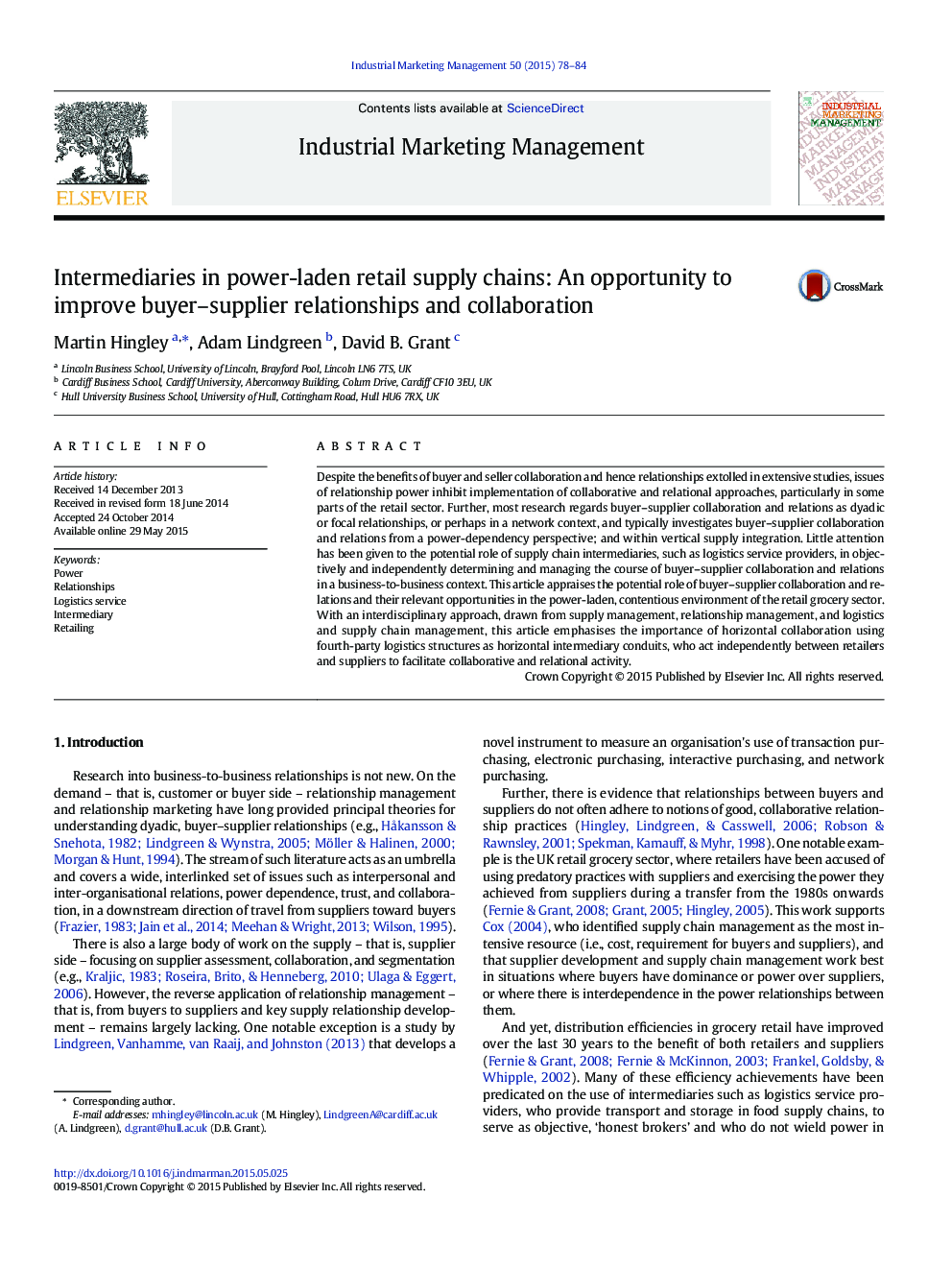| Article ID | Journal | Published Year | Pages | File Type |
|---|---|---|---|---|
| 1027427 | Industrial Marketing Management | 2015 | 7 Pages |
•We emphasise the role of intermediaries in buyer–seller collaboration and relationship management.•Under-explored horizontal supply channels are explored in the form of Logistics Service Providers (LSPs).•Fourth-party Logistics (4PL) arrangements are proposed in an independent role to moderate buyer-seller collaboration.
Despite the benefits of buyer and seller collaboration and hence relationships extolled in extensive studies, issues of relationship power inhibit implementation of collaborative and relational approaches, particularly in some parts of the retail sector. Further, most research regards buyer–supplier collaboration and relations as dyadic or focal relationships, or perhaps in a network context, and typically investigates buyer–supplier collaboration and relations from a power-dependency perspective; and within vertical supply integration. Little attention has been given to the potential role of supply chain intermediaries, such as logistics service providers, in objectively and independently determining and managing the course of buyer–supplier collaboration and relations in a business-to-business context. This article appraises the potential role of buyer–supplier collaboration and relations and their relevant opportunities in the power-laden, contentious environment of the retail grocery sector. With an interdisciplinary approach, drawn from supply management, relationship management, and logistics and supply chain management, this article emphasises the importance of horizontal collaboration using fourth-party logistics structures as horizontal intermediary conduits, who act independently between retailers and suppliers to facilitate collaborative and relational activity.
